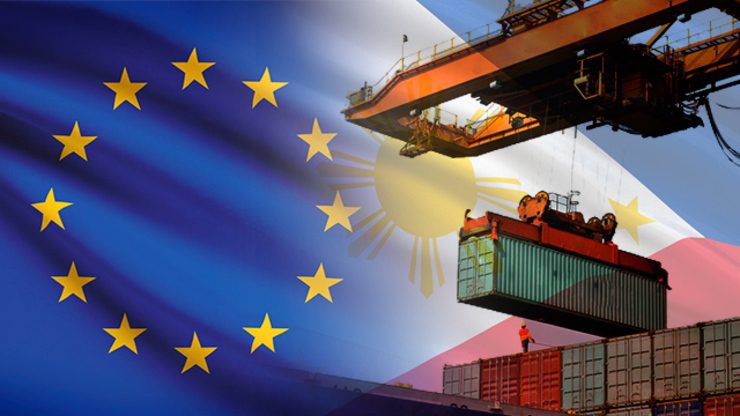SUMMARY
This is AI generated summarization, which may have errors. For context, always refer to the full article.

MANILA, Philippines – To further improve the economic relations between the Philippines and the European Union (EU), Manila must look into public procurement, an area still lagging despite the integration of world markets.
This was the advise of Guy Ledoux, ambassador of the European Union to the Philippines, in his speech at the 52nd annual meeting of the Philippine Economic Society on Friday, November 14.
“Better value for money” or the ability of the authorities to successfully acquire goods, works, or services on the best possible terms is the major gain from an open public procurement system.
Ledoux said world governments have started to understand the importance of government procurement markets and the benefits that could come from undertaking procurement reforms.
Public procurement makes up around 10% to 25% of gross domestic products (GDP) of national economies. In the EU, it corresponds to 19% of GDP or some €2.41 billion or over $6 billion globally. Studies also showed that in EU, an open public procurement policy can save up to 30% of taxpayer’s money.
Another benefit from an open public procurement system is that it becomes an instrument to fight corruption, given that corruption increasing costs by 25% to 50%.
“By curbing corruption in government procurement, authorities can achieve value of money in their acquisitions,” Ledoux said.
Thus, competitive bidding and transparency are tools for addressing corruption as well, Ledoux added.
Rules apply to PPP
There are also public procurement regulatory rules applicable to public-private partnership (PPP) projects.
Tendering PPP projects has provoked a lot of discussion in the media recently, notably surrounding large infrastructure projects such as the Cavite-Laguna expressway (CALAX) and the Light Rail Transit (LRT1) Cavite extension project.
“The principles of transparency and non-discrimination are also fundamental for these projects and a regulatory system that enables all interested economic operators to participate on a fair and transparent basis enhances the quality of such projects, cutting their costs by means of increased competition,” Ledoux said.
European companies have shown interest in such projects and the Philippines could benefit a lot from such by implementing transparency and equal treatment in those tenders so that the best quality could be ensured at the lowest costs, Ledoux added.
“I am looking forward seeing European companies delivering a constructive and competitive contribution to these projects – especially following the encouragement of President Aquino, during his Europe visit in September, seeking European companies to come and invest in the Philippines, through PPP or otherwise. The EU wants to deliver on that,” Ledoux said.
The Philippines can get much from over €200 billion ($249.10 billion) FDI that European companies globally invest yearly once the country join the Government Procurement Agreement as an observer. “This way, the government can show its engagement toward transparency, non-discrimination, and international competition and benchmark its own policies against international ones,” Ledoux said.
Improving the legal framework for foreign bidders would also allow companies to bid at a more equal footing, Ledoux said. “A procurement market open to foreign bidders is a key asset to significantly upgrade the level of competition and ensure better value for money,” he added.
Fully liberalizing foreign bids for infrastructure project above P1 billion ($22.25 billion)** is highly welcome, Ledoux said, referring to Department of Public Works and Highways (DPWH) Secretary Rogelio Singson’s “ambition” and the Government Public Procurement Board resolution allowing such.
“In addition, bringing down that threshold would probably benefit the government even more – allowing more competition also for smaller projects,” Ledoux said.
Implementing the Apostille Convention – the international treaty specifying that a document issued in one of the signatory countries can be certified for legal purposes in all the other signatory states – is also helpful as it would lighten the burdensome requirements for legalizing documents.
“It’s an easy facilitating measure that works both ways and I’m happy with the commitment we have received toward this goal last June,” Ledoux shared.
Overall, Ledoux wished that more European companies will find their way to the Philippines to contribute to help create jobs and add value to the country’s economy.
“Besides building quality infrastructure, open public procurement also helps to save Filipinos tax payers’ money,” Ledoux said. – Rappler.com
*€1 = US$1.25
** US$1 = P44.96
European Union flag image from Shutterstock
Container cargo on a crane image from Shutterstock
Add a comment
How does this make you feel?





There are no comments yet. Add your comment to start the conversation.